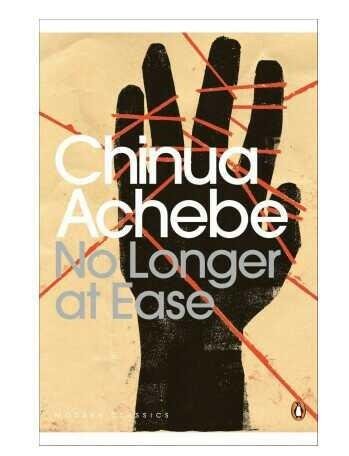Book Review Series#2: No Longer At Ease by Chinua Achebe
“Obi had long come to admit to himself that, no matter how much he disliked Mr
Green, he nevertheless had some admirable qualities. Take, for instance, his
devotion to duty. Rain or shine, he was in the office half an hour before the
official time, and quite often worked long after two, or returned again in the evening. Obi could not understand it. Here was a man who did not believe in a country, and yet worked so hard for it. Did he simply believe in duty as a logical
necessity? He continually put off going to see his dentist because, as he always
said, he had some urgent work to do. He was like a man who had some great and
supreme task that must be completed before a final catastrophe intervened. It reminded Obi of what he had once read about Mohammed Ali of Egypt, who in his old age worked in frenzy to modernise his country before his death.
In the case of Green it was difficult to see what his deadline was, unless it was Nigeria's independence. They said he had put in his resignation when it was thought that Nigeria might become independent in 1956. In the event it did not happen and Mr Green was persuaded to withdraw his resignation.
A most intriguing character, Obi thought, drawing profiles on his blotting-pad.
One thing he could never draw properly was a shirt collar. Yes, a very interesting
character. It was clear he loved Africa, but only Africa of a kind: the Africa of
Charles, the messenger, the Africa of his garden- boy and steward-boy. He must
have come originally with an ideal---to bring light to the heart of darkness, to
tribal head-hunters performing weird ceremonies and unspeakable rites. But when
he arrived, Africa played him false. Where was his beloved bush full of human
sacrifice? There was St George horsed and caparisoned, but where was the
dragon? In 1900 Mr Green might have ranked among the great missionaries; in
1935 he would have made do with slapping headmasters in the presence of their
pupils; but in 1957 he could only curse and swear"
“No Longer at Ease" is a story which vividly depicts Achebe's stand on sociopolitical issues in Nigeria. Obi Okonkwo a graduate of English Language, is the main character of the novel. He is plunged into the realities of pre-independent Nigeria. After getting back from England, Obi vows to make a difference by being upright and honest. However, what Obi doesn't know is that, it would take more than one honest man to change a corrupt state. He is overwhelmed by the level of corruption which he meets in Nigeria and the manner in which people accept the corruption with tranquillity. Things take a drastic turn when Obi starts to get loads of debts and responsibilities to attend to. The once upright Obi, joins the league of corrupt officials.
Achebe uses figurative writing in this novel. He frequently makes use of Igbo proverbs in order to drive home his point. The readers are exposed to the series of clandestine activities which go on in the public service in Nigeria. The writer sheds more light on the Igbo culture, using several characters, such as Clara, Obi's fiance, who is an “osu"( a woman betrothed to a god). There are several themes, inherent in the story. The themes of corruption, colonialism, racism, superstition, bribery, poverty, and the list goes on.
However, the sad thing is, in spite of the fact that the novel was written over 5 decades ago, all the sociopolitical issues, which Achebe sheds light on, still exist in Nigeria.
All in all, it is an excellent book.
